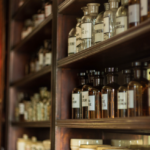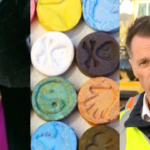Prohibition Causes the Harm: An Interview With Families and Friends for Drug Law Reform

There’s a rising awareness that the century-old system of drug prohibition is failing. It’s evident in the global moves to legalise cannabis, the internationally-lauded Portuguese drug decriminalisation model and the widespread calls to start treating drug use as a health issue, not a criminal one.
The close to fifty years of the war on drugs has seen an intensification of the law enforcement approach to illegal drug use. And this has led to a rise in the consumption of outlawed substances, mass incarceration and the growth of huge criminal networks.
The first casualties of the drug war are the people who use illicit substances. They’re forced to buy their drugs on the black market, where no quality control exists. This leaves them unaware of what the drugs contain, the strength of them or their potential toxicity.
Indeed, with the threat of criminal sanctions, people who use drugs are pushed into the dark corners, where the harms associated increase and their ability to seek help is reduced.
Minimising the harms
In the late 1990s, there was a heroin overdose crisis in Sydney’s Kings Cross. At the time, concerned parties rallied to have a safe injecting facility established in the area. This resulted in the 2001 opening of the Uniting Medically Supervised Injecting Centre. And it’s been saving lives ever since.
Safe injection sites are part of the harm reduction approach to drug use. This tactic acknowledges that despite being illegal, drugs are still being taken and safeguards can be put in place to lessen the harms related to their use, many of which are caused because they’re forbidden.
Over recent years, there’s been a similar drug overdose epidemic in Melbourne’s North Richmond. And widespread calls to bring a halt to this crisis, eventually lead the state government to agree to the trialling of a medically supervised injecting room in the local area.
Pill testing is another life-saving approach. Most Australians are now calling for these services to be rolled out, following the numerous drug-related deaths that have occurred at festivals over the last decade. This method allows festivalgoers to make an informed decision about whether they should take drugs.
However, following the drug-related deaths of two young Australians at the Defqon.1 festival in September, NSW premier Gladys Berejiklian ruled out any consideration of pill testing and subsequently announced her government would intensify its tough on drugs stance.
The forgotten casualties
The families of those who fall victim to prohibition can often be overlooked. And that’s where Families and Friends for Drug Law Reform (FFDLR) come in. The group seeks to provide a voice to those who’ve been affected by tragedy, so they prevent others from happening.
FFDLR formed in March 1995 following eight heroin overdoses in Canberra. And since that time the group has had a focus on changing the laws around drug use, as they recognise that the system of prohibition has actually increased harms and problematic drug use.
Sydney Criminal Lawyers® spoke to FFDLR president Bill Bush and secretary Marion McConnell about how current laws allow dangerous drug-taking practices to take place, the case for the implementation of pill testing and why the removal of criminal sanctions for personal use is a necessity.
Firstly, your website outlines that a FFDLR member, whose son died of an overdose, subsequently questioned the laws that allowed for such a potent drug to be sold to his son without any controls whatsoever.
Many people would initially question this statement, as the laws of prohibition are supposed to prevent illegal drugs being sold without controls. Can you expand on why this actually isn’t the case?
Marion: It’s all to do with demand and supply. If there’s a demand for drugs, which there is, and it can’t be satisfied through legal means, well, the criminals will step in.
There’s lots of money to be made out of illegal drugs. The illegal trade at the moment is worth about $600 billion annually. It’s all about demand and supply.
Bill: If you look at 1953, when the Australian government had its arm twisted – by what was the equivalent of the International Narcotics Control Board – to clamp down on excessive prescription of heroin, there was a mere 5 kilograms per million of that drug used in the country.
And it was all used for either prescription medication – as it still is in the UK as an analgesic – or in patent medicine, like cough mixtures and things like that. So, 5 kilograms per million in 1953.
The National Crime Authority estimated in 1988-89 that there were 350 kilograms per million. That’s a pretty big increase.
And crystal meth grew from less than a kilogram in 1997-98 to 82 kilograms in 2001. Cocaine was almost insignificant. In the 1993 Household Survey, half a percent of the population reported recent cocaine use. In 1998, it had gone up to 1.4 percent.
It is a supply problem, not so much a demand problem. And because they’re addictive drugs, if they’re supplied and they’re readily available, then people use this stuff.
We have long said that prohibition makes drugs too available. It didn’t protect the kids and brothers and sisters of members of Families and Friends for Drug Law Reform.
It was the deal of the government to do that. They failed on that deal. And they killed our kids.
So, prohibition leads to drugs being placed outside of the law. What are some of the other hazardous outcomes that having certain substances classed as illegal results in?
Bill: Have you looked at the preamble to the Drug Trafficking Convention of 1988.
No.
Bill: Just look at that preamble. A greater catalogue of failure, I don’t think you could gather together. The list of failures, includes children getting addicted, failed states, corruption. These are all the fruits of prohibition.
Marion: Thinking about the local scene, the drugs are unregulated, the people using them don’t know the quality and the quantity. That’s unknown, so overdoses occur.
And there are illnesses like HIV/AIDS, hepatitis, tuberculosis, even heart infections – all sorts of health problems occur.
Another important thing that happens is the breakdown of families. With families that can’t cope with their child’s drug use, there’s often alienation. There are criminal records. There’s time in prison and job prospects are lessened. Not to talk about the stigmatisation that goes with drug use.
That leads me into my next question. The stigmatisation of people who use drugs is another negative aspect of the current situation.
In your opinion, why is the stigma around illicit substances so strong? And why is it so detrimental?
Marion: I believe it’s to do with the indoctrination and propaganda over the many years of prohibition. We’ve been led to believe that these drugs that are prohibited are very dangerous. They’re bad drugs and therefore people who use them are bad.
This is another negative aspect of prohibition: the stigmatisation that it has caused. And that stops young people from speaking to their parents, because they think their parents are going to think
they’re bad because they’ve used these drugs. So, it’s not discussed and they’re alienated.
And the labels that are put on people too are stigmatising. Even just the word “addict”. It really puts shivers up my spine, because these people aren’t just defined by the drugs they use. They’re people first. So, this labelling of people is bad.
Bill: It’s very curious. I think a lot of people equate the legality or illegality of something with morality. In other words, if it is prohibited by law then it’s ipso facto wrong or bad.
The law is just a human construct. Parliament changes the laws thousands of times a year with legislation and amendments.
There’s a deep-rooted feeling in the community that if it’s prohibited, then it’s wrong. Now, that’s irrational.
When you look at the burden of disease, the greatest burden of disease from drugs, of course, are from the legal ones: tobacco and alcohol. They cause far more deaths, injury and disease, than the illicit ones.
We’ve seen in tobacco how we’ve been able to move towards a very substantial reduction of the use of that most harmful drug. And it hasn’t been achieved by prohibiting it.
The criminal law causes huge harms. And it acts as a stimulant to drug availability.
There are rising calls within the community for pill testing to be rolled out. The first government-sanctioned pill testing trial took place at Canberra’s Groovin the Moo festival in April.
What do you think was learnt about the potential for pill testing at that event? And why do you believe most authorities remain reluctant to even contemplate implementing this evidence-based technique?
Bill: To answer your last question: political fear and gutlessness.
Marion: The pill testing trial here in the ACT was a success. It was only a small one, because it was the first time it had been done.
Around 125 people were assessed, and 85 samples were provided. A couple of pills were found to be quite dangerous, so the young people didn’t use them.
It’s a step in the right direction. Harm reduction is what pill testing is all about, trying to save lives and reduce the harm.
Why are politicians so quick to say no? NSW is the great example with the premier and her knee-jerk reaction. Why they do this is unfathomable, because it really is just about saving lives.
But, I think it’s a fear. It’s a fear of the repercussions of the media and their voters. They’re worried about what the public are going to think.
And really the public are coming on side with these things now. We’re getting more than 50 percent of people agreeing with this. So, it’s unfathomable why they are feeling this. Whether it’s the influence of the Christian right, I’m not sure.
But, the evidence and the research is all out there for you to see. And why they can’t look at that and agree we need to trial this is beyond me.
Bill: In pill testing the perfect is the enemy of the good. It seems to be very hard for politicians to get across the concept of risk and risk reduction.
Pill testing does not guarantee that there won’t be the consumption of particularly dangerous pills, but it reduces the risk of it. It seems to be very difficult for politicians, because they’re scared about getting that message across.
Well, that leads us to Gladys Berejiklian’s reaction following the two drug-related deaths at the Defqon.1 festival.
The premier put together an expert panel to review safety at music festivals, but she told them to rule out consideration of pill testing. She then came back and announced an intensification of their tough-on-drugs stance.
What do you think about this reaction by the NSW government?
Bill: Hairy chested. It’s playing up to the tough on drugs thing. And we’ve seen it time and again.
An election looms. And it’s a sure-fire winner to build up fear about drugs. If any party is seen to be going soft on drugs, it becomes a political vulnerability that the other parties will jump on.
This is one of the dynamics that prevents the rational debate that the community wants to have about drug policy.
I’d just add though, read the Berejiklian media release. It’s not all bad news. Buried in it is a very important step in harm reduction. They are going to impose an expiation notice system – an on-the-spot fine system – for attendees of dance parties.
They will get an on-the-spot fine. You won’t get hauled before the court. And you won’t get a criminal record, I believe. It’s not all bad news.
FFDLR has been campaigning for sensible drug law reform for over two decades. Can you explain what the work your group carries out entails? And what your main focuses are at present?
Marion: We’ve done all sorts of things in the 23 years or more that we’ve been in existence. We’ve tried everything.
But, the main thing that we want to do is ensure that the voices of parents and families are in the mix. So, our main objective has been raising awareness in our community.
We have meetings. We write newsletters and we have a website. We tweet and we meet with politicians.
Bill: In this line of business you never do enough and there is always something you could have done. But, as Marion has said, we’ve attempted everything.
Marion: In more recent times, we’ve been working with other organisations like Uniting and Australia 21 trying to support them and help with their campaigns.
Bill: It’s very important to mention what Australia 21 is doing. They’ve now published about five different reports on drug policy. And they have the capacity of being able to get some fairly high-level people around the table.
One report – We All Pay the Price – just recently came out, I believe.
Bill: It is a ground breaker. Because what it is looking at is the social harms of drug policy.
Not the harms of the drugs, but the social harms. If you look at homelessness or poverty. You’ve seen how drug users are in the sights of the government because you have to be tested or you will have your benefits docked and things like that.
These are some of the manifest social harms that the existing drug policy is causing. If you treated this as a health issue, you’d be much better off.
And what’s stopping this happening is the criminalisation of it, because you are dealing with criminals. So, someone who is in treatment and has stabilised might be thumped by the police and it just completely destroys them.
Look at the makeup of the NSW prison system. It’s a combination of a mental health issues and substance dependency. Almost 90 percent of the women in the NSW prison system are in that position.
If you look at other countries like Switzerland, where they have heroin-assisted treatment, you’ve had reductions in drug-related property offences of something like 90 percent.
One of the earlier successes for your group was to bring about a change in police protocol, so that officers only attend an overdose if death or violence is involved.
When did this development take place? And what would you say its impact has been?
Marion: We’d like to say we had a fair bit to do with that change. And it followed on from the story that my husband and I told about an incident that happened with our son, where police became involved and drove him away from the health system. They frightened him away.
So, we told that story quite a lot. And we believe this is why that change happened. This was in 95-96.
Back in those early days, FFDLR had a reasonable connection with police. And I was just recalling one incident, where we were invited to this Operation Candid. The name meant “community against drug induced death”. This was in late 96.
Members of FFDLR were invited to take part in it. It was a community phone in. And we were around the table with ambulance officers and representatives of the ACT Department of Health and Community Care.
And we said before we agreed to go that we were anti-prohibition, so they may not want us there. But, they said it was OK.
But, we haven’t had anything like that since. Police officers used to attend our remembrance ceremonies in the early years too, which we haven’t seen much in later years.
Bill: That was the time the ACT chief minister was Kate Carnell. And she was a Liberal. She led a Liberal government. And she was also a pharmacist. She was a proponent of getting up a prescription heroin trial.
Through her efforts and the COAG process, she got the agreement of the Commonwealth and the then health minister Dr Michael Wooldridge under the Howard government.
The trial would not only have involved the ACT, but also NSW and Victoria. This was all in place. And it was approved at Commonwealth cabinet level.
Within days of it occurring, there was a scream from a Sydney shock jock and the Daily Telegraph, saying that the sky was going to fall in.
The word is that a certain media mogul visited John Howard in hospital and changed his mind. There was a cabinet meeting and he said the position has been countermanded.
And lastly, FFDLR is anti-prohibition. So, do you advocate for a system of decriminalisation or legalisation? And how do you envision this system would work?
Marion: Change needs to happen in incremental steps. And we’re about reducing harm to drug users and their families, which is about the regulation of drugs by government.
We use a U-curve which shows the top of one axis is the maximum harm from liberalisation and on the other side is the maximum harm from prohibition. So, where we want to get is the bottom of the U-curve, where there’s the least possible harm.
So, we would advocate in the first instance for the decriminalisation of all drugs. The criminal sanctions must be taken away from those who use drugs, so they are more likely to ask for help and they’re less likely to receive prison terms.
We must remove the criminal sanctions for personal use and possession. And the other one, of course, would be heroin on prescription for those who have tried all other means of help and support and it hasn’t worked.
Putting drug use in the health system, and not the criminal justice system, is what needs to happen.
Bill: We aren’t in favour of rampant commercialisation. You just have to look at what is happening in gambling to see the nefarious impact of unfettered commercialisation of a potentially harmful activity.
It’s navigating the sweet spot between rampant commercialisation and prohibition. It’s that point at the bottom of the U-curve.
Marion mentioned heroin-assisted treatment. Do you call that decriminalisation or legalisation? To me, in some sense, it is probably legalisation.
It would become a legal drug for doctors to administer, but it would be in the hands of the medical profession. No one in their right mind, would make heroin available in the supermarket.
It’s a very safe drug in the hands of the medical profession. It has never not been used as an analgesic in the UK and Canada.
We are after cautious steps that focus upon reducing the amount of harm.
In the ACT, Michael Pettersson, a Labor Party backbencher…
Yes, I spoke to him about his legalising personal cannabis use proposal.
This is highly significant. You come back to your values here. Sure, we want to restrict as much as we can availability of cannabis to teenagers.
The Dutch have managed to do this with their de facto legalislation, because you can’t get into a coffee shop if you are under 18.
But, here any kid – 12, 13, 10 – can get it from a criminal. This comes back to the reduction of access.
But, why someone at 35, 40 or 60, who wants to have a toke, can’t have one – blow me? I mean, it’s wrong.







